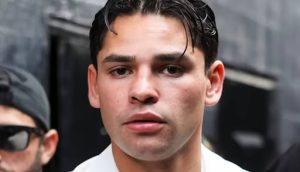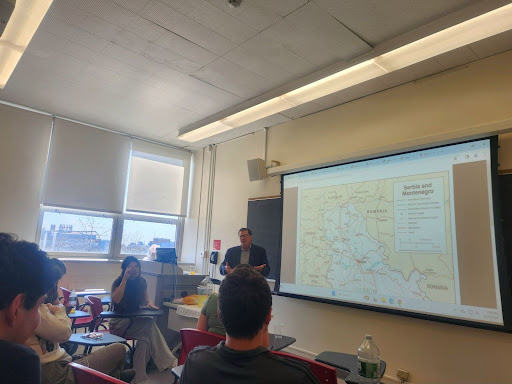The Debate Society held a mock debate March 3 in St. Augustine Hall to showcase the skills of its members, who have been competing all over the country this year.
Arguing over whether or not the core curriculum should be a requirement for graduation, the Debate Society split into two sides, Government and Opposition, with four students arguing each side.
Government argued against having core classes, while Opposition argued for their benefits.
George Fitzpatrick, a junior and leader of Government, opened the debate by arguing that colleges use core courses as a means of income, since students are mandated to take these extra classes.
“College is built on a sound financial industry,” he said. “Colleges lie to attract students with promises of becoming complete citizens.”
Other Government members made similar arguments, citing other universities, such as Brown, who allow their students to make their own selections on liberal arts classes.
The debate became more heated as the two teams argued between students being given the responsibility to command their education, versus teachers continuing the tradition of leading students into the future.
Opposition opened their argument with freshman Sara Marron stating that core classes were beneficial because they are often selected by professors, who have had more academic and real world experience.
“Higher education is about real world learning and students enroll in college to become more complete citizens,” she said. “It would be much harder to interact with others in other fields, if we had a one-track mind.”
Other members of the group argued that cores should be seen as an opportunity for students to maintain higher GPAs and have an opportunity to experience
other topics.
Sophomore Hannah Pribek argued, “If given the choice, students would only pick easier classes to increase their GPAs.”
She said, “Cores make us understand the other areas of society and help undecided students pick out a major.”
Students and faculty present at the debate also weighed in the importance of core classes for college students.
“I’m an anthropology major. I think it would be better if there were suggestions” said freshman David Stewart. “I wouldn’t have taken these philosophy classes; I would have taken world religions instead.”
“They educate people, you want to be educated not trained” said Speech Professor Michael Hostetler, who was also present at the debate.
Robert Forman, head of the Honors Department, teaches one of the University’s required cores, Discover New York. He did not want to take sides, but believes that cores give students opportunities they might not otherwise take advantage of.
“I try really hard to make the courses multidisciplinary so that there’s some appeal,” he said. “Some literature, some history, some math, it offers a chance for students to get a lot out of these courses.”
Sophomore Victor Arrieta said he found both sides appealing.
“I am neutral because, thanks to the cores I was able learn about different things,” he said. “However, some may just want to finish their classes for their career and having these courses will halt the journey for whatever it is they want to achieve.”
No winner was announced at the end of the debate, suggesting a tie.
The debate was the second in a series of three. The final debate will be held on April 7. A topic has yet to be announced.















